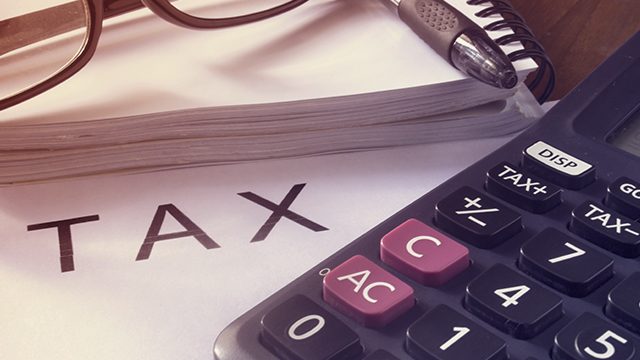SUMMARY
This is AI generated summarization, which may have errors. For context, always refer to the full article.

MANILA, Philippines – Members of the bicameral conference committee on Monday, December 11, finalized the Tax Reform for Acceleration and Inclusion (TRAIN) bill, seeking to cut personal income tax but impose higher levies on fuel, coal, cars, mining, and tobacco, among others.
It took the Senate and the House of Representatives 5 meetings to reconcile differences between their versions of the bill, considered to be a priority measure of President Rodrigo Duterte. The target revenue is P130 billion.
Both chambers of Congress have to ratify the bicam version before it gets sent to Duterte for signing into law. The target implementation of TRAIN is on January 1, 2018, or just 3 weeks from now.
The Senate and the House are expected to ratify the bicam version on Tuesday, December 12. Congress is set to adjourn for the Christmas break on Friday, December 15.
Higher take-home pay
Lawmakers have agreed to exempt from tax the first P250,000 annual income of Filipinos to increase their take-home pay. This means those earning around P21,000 a month would no longer need to pay income taxes.
Below is the approved income tax schedule starting January 1 next year until 2022.

By 2023, the rates would slightly go down.

Higher tax on sugar-sweetened drinks
Legislators agreed to impose a tax of P6 per liter on drinks using sugar and artificial sweeteners and P12 on drinks using high fructose corn syrup.
They also agreed to retain the tax exemptions for milk and instant coffee.
More expensive fuel
To compensate for the loss of revenue, Congress decided to increase taxes on fuels such as gasoline, diesel, and liquefied petroleum gas (LPG), among others. This means higher prices for such commodities.
Diesel, which at present has no tax, would be imposed P2.50 per liter in 2018, P4.50 in 2019, and P6 in 2020.
LPG would have a tax of P1 in 2018, P2 in 2019, and P3 in 2020.
For gasoline, from the current tax of P4.35 per liter, it would be imposed a levy of P7 in 2018, P9 in 2019, and P10 in 2020.
For 2018, aviation gas would be taxed P4 per liter; asphalts P8 per kilogram; kerosene P3; naphtha P7; bunker fuel P2.50; lubricating oil P8; paraffin wax P8; and petcoke P2.50.
All petroleum products used as input, feedstock, raw materials for petrochem, and refining or as replacement fuel are tax-exempt.
Tax scheme for cars
The bicam approved a 4-tier tax scheme for automobiles:
- 4% for up to P600,000
- 10% for over P600,000 to P1 million
- 20% for over P1 million up to P4 million
- 50% for over P4 million
All pick-up trucks and electric vehicles would be exempted from additional taxes.
Hybrid cars would be imposed half the taxes as non-hybrid vehicles.
Higher tobacco tax
The joint panel decided to increase the prices of tobacco by 2018 despite the absence of this provision in both the Senate and House versions. They only inserted it in the bicam likely to meet the revenue target.
Under the existing sin tax law passed in 2012, the tax rate for next year would be P31.20.
But if TRAIN is signed into law, this would increase to P32.50 for the first 6 months of 2018 (January 1 to June 30).
It would then increase to P35 from July 1, 2018 to December 31, 2019.
A tax of P37.50 would then be imposed from 2020 to 2021; P40 by P2022 to P2023; and a 4% annual increase after that.
Coal, cosmetic surgeries
The bicam agreed to increase the tax on coal from P10 to P50 for 2018, P100 for 2019, and P150 for 2020.
This is lower than the Senate proposal of P100, P200, and P300 over the same 3-year period.
Senator Sherwin Gatchalian earlier opposed the Senate proposal, saying it would lead to higher electricity rates and be a burden to consumers.
The unique Senate proposal to tax cosmetic surgery or medical procedures for purely aesthetic purposes was also included in the finalized version.
However, from the 10% tax pushed by senators, the bicam lowered it to 5%.
Senate Minority Leader Franklin Drilon earlier said there was “very strong” lobbying against the imposition of taxes on aesthetic surgeries but refused to identify who were involved. – Rappler.com
Add a comment
How does this make you feel?
There are no comments yet. Add your comment to start the conversation.